
The Multiannual Financial Framework 2014-2020: A budget for Europe 2020
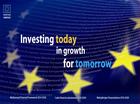 The European Commission presented its proposal for the multiannual financial framework (MFF) 2014-2020. This marks the beginning of negotiations between the European Parliament and the Council of the EU (the member states), which have to agree on the principles, priorities and concrete numbers until the autumn of 2012. This will be one of the hottest issues next year, in the context of the economic challenges, the Union is facing, and the serious differences between the positions of Parliament and Council on key issues. In general, Parliament calls for a budget increase to meet the commitments of the Union under the Europe 2020 strategy. The Commission proposal expresses the same spirit. Member States, however, insist EU budget to reflect the austerity measures, implemented at national level, and even to be frozen until 2020. euinside will follow the progress of negotiations and will present in detail both the Commission's proposal and the positions of Parliament and Council, as we did in terms of the current MFF 2007-2013.
The European Commission presented its proposal for the multiannual financial framework (MFF) 2014-2020. This marks the beginning of negotiations between the European Parliament and the Council of the EU (the member states), which have to agree on the principles, priorities and concrete numbers until the autumn of 2012. This will be one of the hottest issues next year, in the context of the economic challenges, the Union is facing, and the serious differences between the positions of Parliament and Council on key issues. In general, Parliament calls for a budget increase to meet the commitments of the Union under the Europe 2020 strategy. The Commission proposal expresses the same spirit. Member States, however, insist EU budget to reflect the austerity measures, implemented at national level, and even to be frozen until 2020. euinside will follow the progress of negotiations and will present in detail both the Commission's proposal and the positions of Parliament and Council, as we did in terms of the current MFF 2007-2013.
 Kristalina Georgieva | © Council of the EU
Kristalina Georgieva | © Council of the EUKristalina Georgieva Will Propose Urgent Amendments to the EU Budget
The European Commission will today (12 November) propose amendments to the own resources regulation in an attempt to solve the problem that emerged during the October European Council with the corrections of some member states' contributions to the common EU budget. In the end of each year, the ...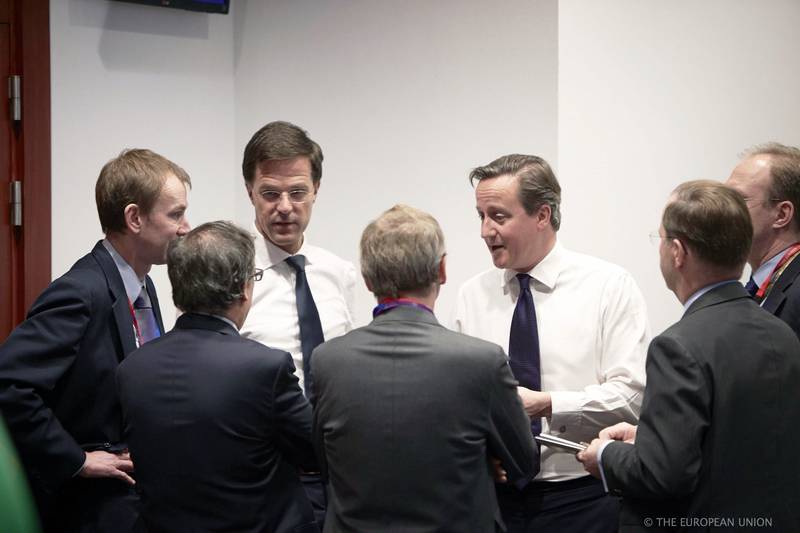 Mark Rutte, David Cameron | © Council of the EU
Mark Rutte, David Cameron | © Council of the EUHow to Make an Elephant out of a Fly? Ask David Cameron
After the end of the lethally dangerous stage of the eurozone crisis, it was rather an exception the summits of the leaders of the EU member states not to be accompanied by a British scandal. The situation has fiercely deteriorated around the European elections and the new procedure for election ... | © European Parliament
| © European ParliamentThe European Parliament Wants To Be Taken Seriously
With 506 votes "for", 161 "against" and 23 abstentions the European Parliament showed its teeth on March 13th by rejecting the deal for the multiannual budget of the Community for the period 2014-2020. This move was expected as the Europarliament was threatening with a veto ever since the begin ...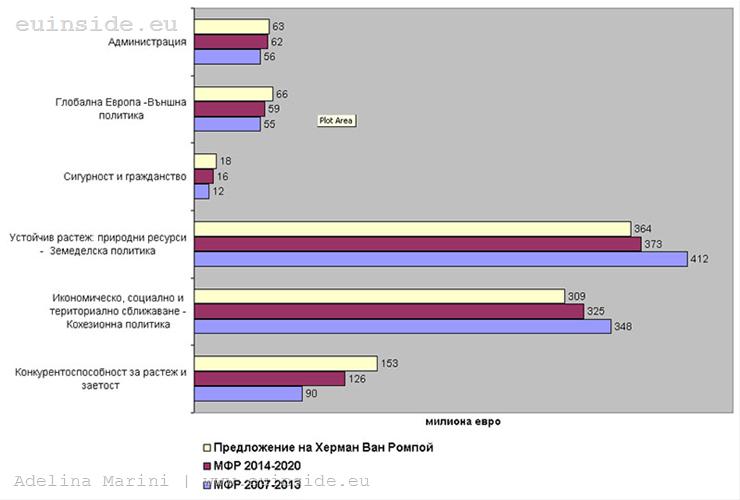 | © euinside
| © euinsideThe Deal for the EU Budget Framework 2014-2020: Disunited in Uniformity
Unlike previous negotiations on the seven-year financial framework of the European Union, this time there was no thrill, no matter that the last summit continued a little over 24 hours. Although, at first glance, many similarities can be seen with previous negotiations, there are many big and e ...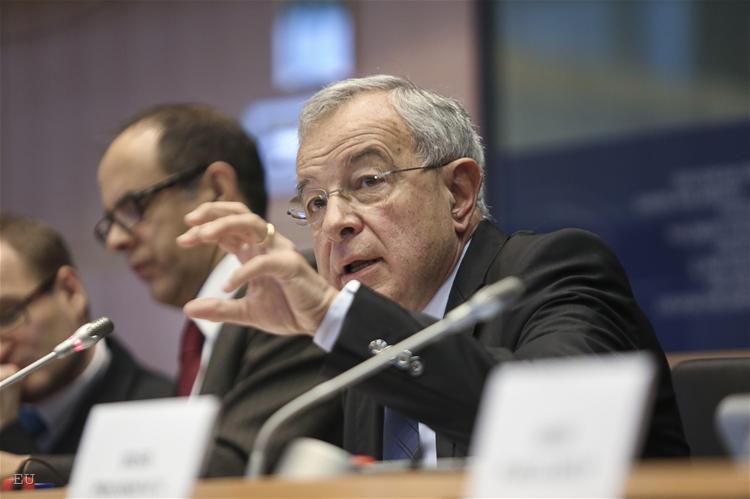 | © EU
| © EUEU Budget 2014-2020: Deal or No Deal
A lot of time passed since the first special EU summit dedicated on the multiannual financial framework for the period 2014-2020. In the mean time it became clear that the eurozone will not have a common budget or at least not in a foreseeable future; there will be a single supervisory mechanis ...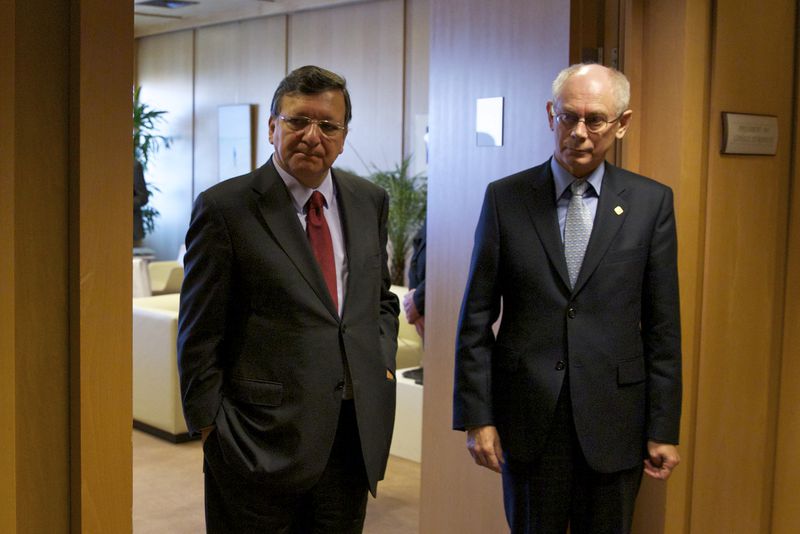 | © EU
| © EUThe EU Has again Shot Itself in the Foot with Budget 2014-2020
The failure of the special EU summit for Budget 2014-2020 is not simply a failure of the EU leaders to agree about money. It is about something much deeper that has been emerging clearer for quite some time - the internal EU conflict. The conflict between the EU of the institutions and the EU of ...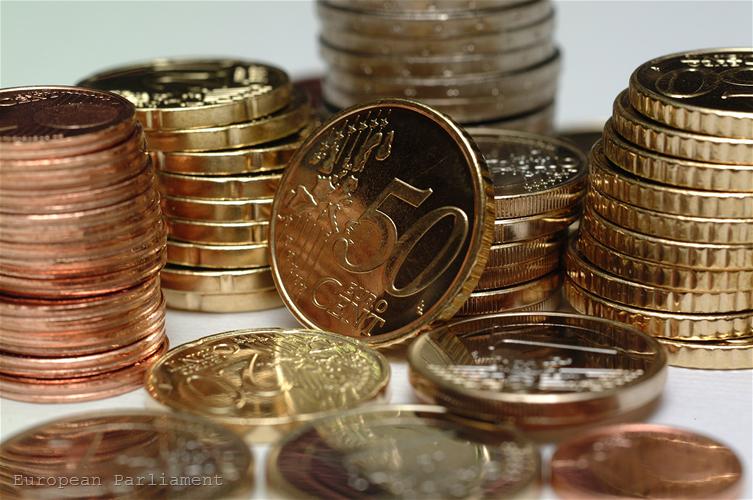 | © European Parliament
| © European ParliamentNegotiations on Budget 2014-2020 - A Catharsis for the EU
In the very beginning of the negotiations on the multiannual financial framework (MFF) of the EU for the period 2014-2020, the most controversial moment among the member states was where the negotiations should start from - top-down (meaning from the total amount of the budget first and then the ...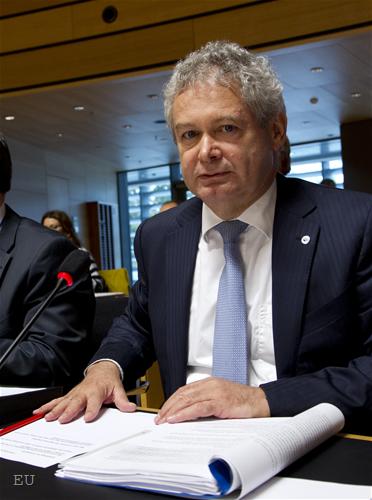 | © EU
| © EUNothing Is Agreed Until Everything Is Agreed
On November 5th, European Council President Herman Van Rompuy will begin a tour in the EU member states for last consultations on the national positions before a key and extraordinary EU summit on November 22-23, dedicated entirely on the negotiations on EU Budget 2014-2020, at the moment entire ...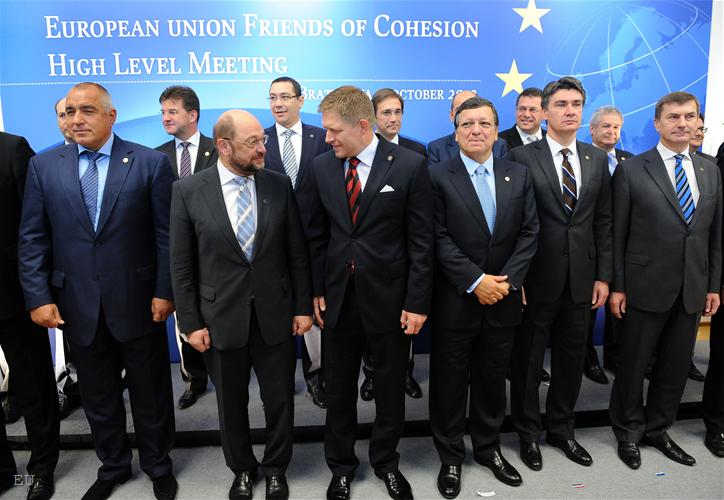 | © EU
| © EUWanted: Members for the Group "Friends of Growth"
A lot of ambition but a little possibilities there were at the summit in Bratislava last week of 15 EU member states and Croatia (which is to become a full fledged member of the Community on July 1st, 2013). In the Slovak capital, on October 5th gathered prime ministers and representatives of Bu ... | © euinside
| © euinsideParliament Might Step Back for Budget 2014-2020
It is not acceptable to ask a horizontal reduction of all European policies because some of them cannot work with less money. This is what Ivailo Kalfin said, a Bulgarian MEP from the group of Socialists and Democrats in the European Parliament in an interview with euinside. Mr Kalin is one of ... | © euinside
| © euinsideTomislav Donchev: The Cohesion Policy Is the Art of Investing in Shared Benefits for All Countries
Bulgaria is preparing to begin absorbing funds as early as of 2014 from the EU 2014-2020 budget, the negotiations on which are now entering a decisive phase, the country's Minister for EU Funds Management Tomislav Donchev told euinside in an interview. The country could enter the next programmi ...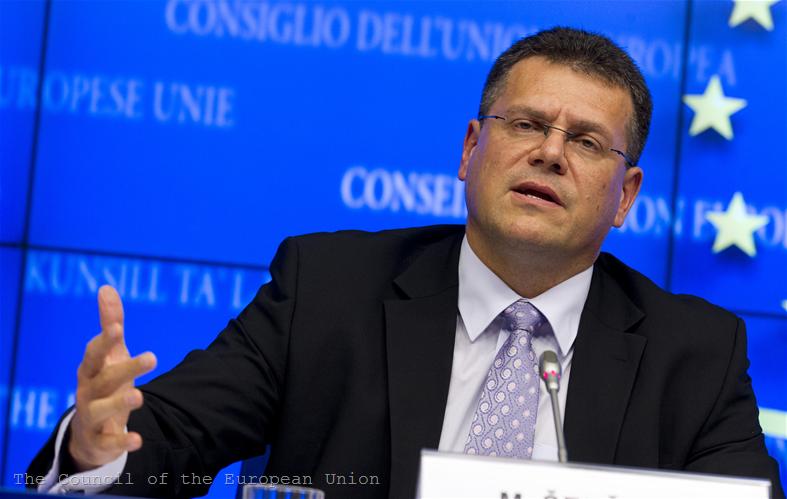 | © The Council of the European Union
| © The Council of the European UnionThe MFF Negotiating Box Has Been Changed, but Not the Positions
The Cyprus Presidency of the EU tried to unblock the negotiations on the next seven-year European budget, but so far with no success. As a result of consultations with the Member States during the summer, it submitted a revised "negotiating box" - the document on the basis of which the Multiannu ...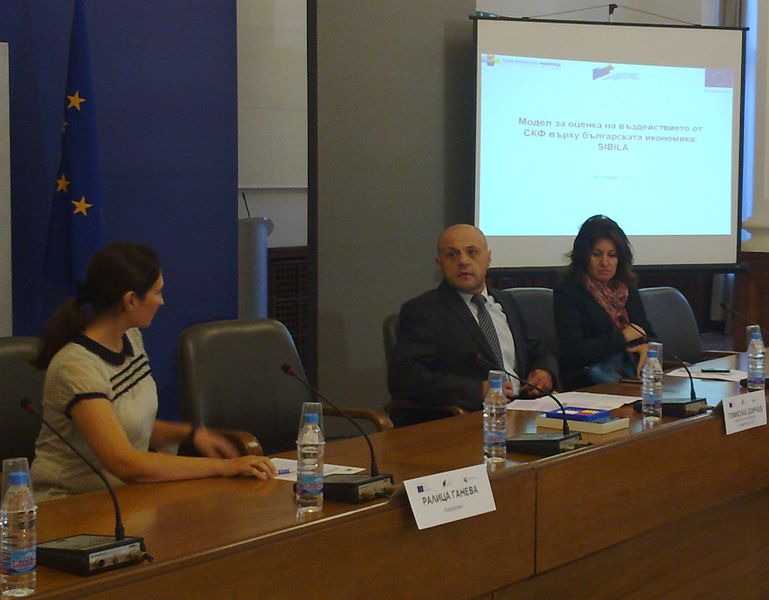 | © euinside
| © euinsideBulgaria Benefits from the EU funds, but It Needs to Show Real Results
The benefits for the Bulgarian economy from the absorption of EU funds are undeniable and already measurable as well. Using the econometric simulation model SIBILA* we can measure the effect of EU structural and cohesion funds on the Bulgarian GDP, employment and income. The model compares two m ... | © www.cy2012.eu
| © www.cy2012.euComplete Deadlock in Negotiations on EU Budget 2014-2020
The European Union is facing a serious risk of failing to reach a compromise on the size of the budget for the next seven-year financial period 2014-2020. The reason is that among the member states there is a hard core of countries insisting that the total expenditure ceiling should be reduced, ...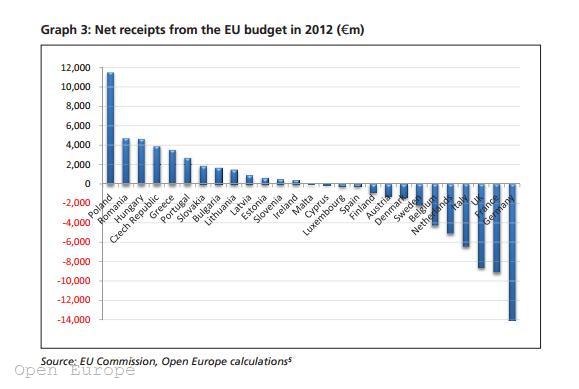 | © Open Europe
| © Open EuropeThe Next EU budget - More Money but for Whom?
No one is satisfied with the updated European Commission proposal for the next seven-year EU budget (2014-2020), as emerged from the General Affairs Council meeting on 24 July. The reason is that, on the one hand, the overall budget is increased, compared to the original proposal, and on the oth ... | © euinside
| © euinsideElzbieta Bienkowska: Poland's Success Is Due to Hard Work, Not PR
I met Ms Elzbieta Bienkowska in Sofia where she was invited by Tomislav Donchev, Bulgarian minister of EU funds management. As a minister of regional development of Poland, Ms Bienkowska chaired the meetings of the Council of Ministers devoted on the future of cohesion policy in the next EU budg ...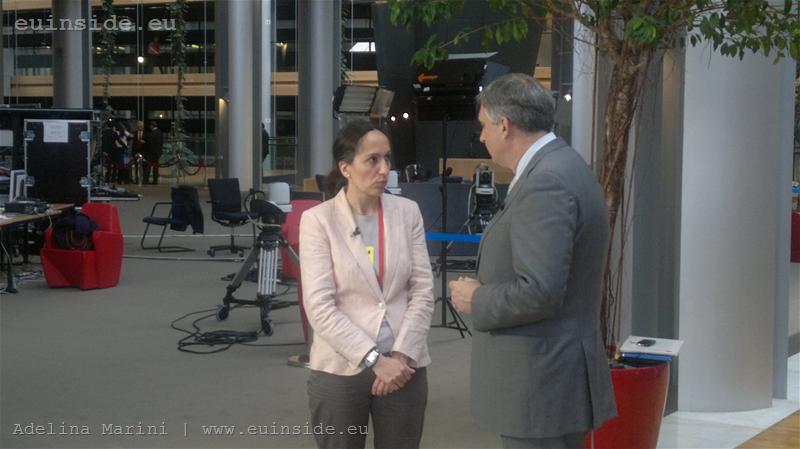 | © euinside
| © euinsideThe Commission and Parliament against the Council in the Negotiations on the Next EU Budget
The European Parliament, under the leadership of German socialist Martin Schulz, hardened significantly the tone on some key for the European Union issues - security and common budget - and it seems that these are not going to be isolated actions. The Parliament not only wants but demands its e ... | © European Union
| © European UnionNegotiations on EU Budget 2014-2020 in Stalemate Pending Leaders` Say
At their summit in late June, EU leaders are to discuss for the first time the next multiannual financial framework (MFF) for the years 2014-2020. A year ago the European Parliament announced that it would insist on at least 5% increase of the EU budget for the next seven years, based primarily ...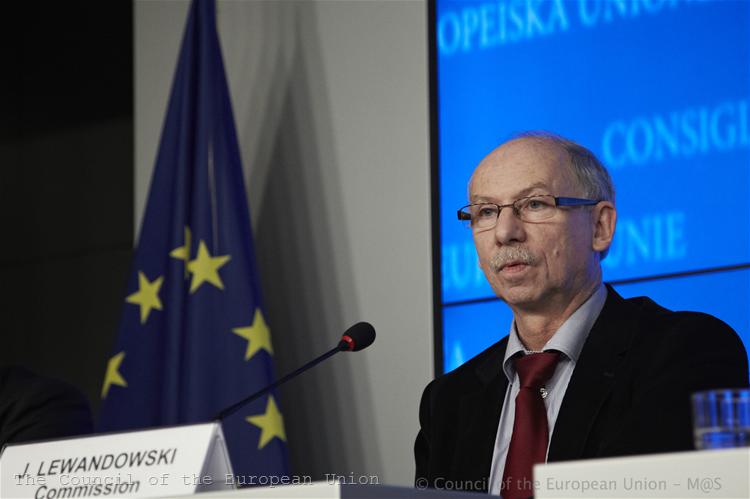 | © The Council of the European Union
| © The Council of the European UnionFriendly Fire during the Negotiations on the EU 2014-2020 Budget
"Friends of Cohesion policy" against "Friends of better spending" - within these two camps the debates on the Multiannual Financial Framework (MFF) of the EU for 2014-2020 will be led. The division between the member states has been obvious for months, but was cemented during the General Affairs ... | © European Union
| © European UnionWho Benefits from the Cohesion Policy?
It is inevitable tensions between the expression of solidarity and responsibility in the EU, that crystallised during the crisis, to affect the debate on the next Multiannual Financial Framework (MFF) 2014-2020. It is inevitable countries who are forced to pay for saving their distressed Europea ...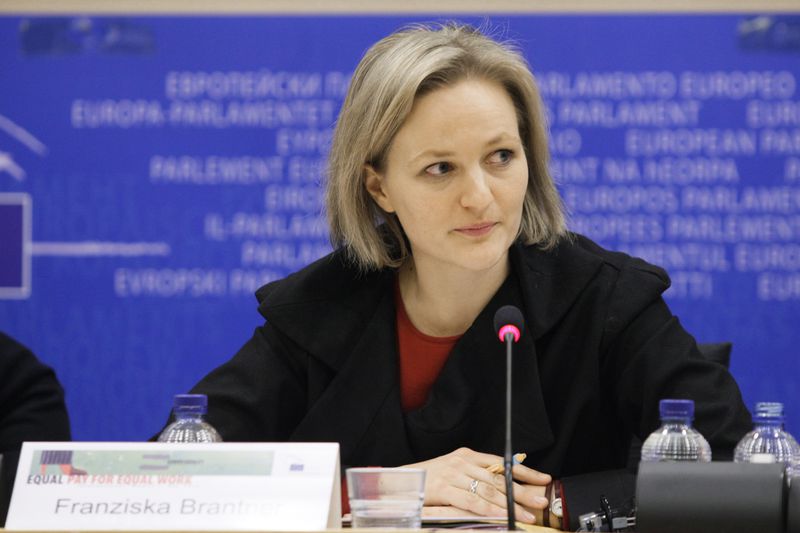 | © EU
| © EUThe Debates on Budget 2014-2020 in the EU Start Inflaming
The debates on the next multiannual budget of the EU for the period 2014-2020 enter the essential debates phase and the front lines are already drawn. Last week in Brussels a second conference took place on the issue in which representatives of national parliaments and the European institutions ... | © The Council of the European Union
| © The Council of the European UnionGermany: We Need a Decision on the Financial Transaction Tax by June
The dispute on the introduction of a financial transaction tax (FTT) in the EU has been stuck for months. The pros and cons have not changed, although some countries have moved from the camp of tax opponents to the supporters' side. The only news from the latest discussion on the topic in the Co ...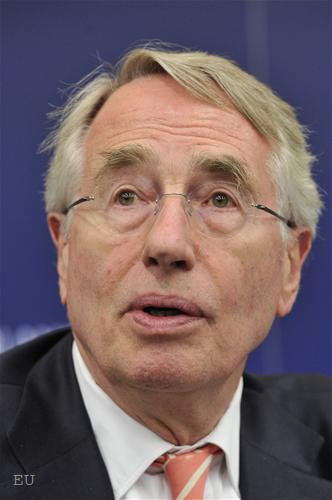 | © EU
| © EUApple of Discord in the EU - the Financial Transaction Tax
The Financial Transactions Tax (FTT), proposed by the Commission in September, will cause additional division of Europe. This was one of the fears, expressed by Olle Schmidt, MEP (ALDE, Sweden) during the first for 2012 meeting of the Committee for Economic and Monetary Affairs. Out of 3 points ... | © euinside
| © euinsideEurope 2020 Depends on the Evolution of the Crisis
There is a lot of pessimism, although presented with a sufficient dose of humour, in the analysis of the Europe 2020 strategy for EU's growth in this decade in the statement of Pawel Tokarski, a Pole with the Polish Institute for International Relations. He spoke during a conference on EU's Mu ... | © euinside
| © euinsideEurope Stands in a Junction with its 2014-2020 Budget
One of the main actors in the heated debates on EU's 7-year budgets is Britain. The country is a net contributor to the budget and has some very clear priorities that it wants to be financed with the common money. This is why it was indeed a very good choice to invite a representative from the ... | © euinside
| © euinsideThe Right Balance Must be Found between the Pros and Cons for the Own Resources
During the conference "The EU Multiannual Financial Framework 2014-2020 in Times of Crisis," Ms Iren Roussinova, with Bulgarian Ministry of Finance, explained the ideas for changes of the own resources system in the European budget. She said that the discussion was at a very early stage and no ...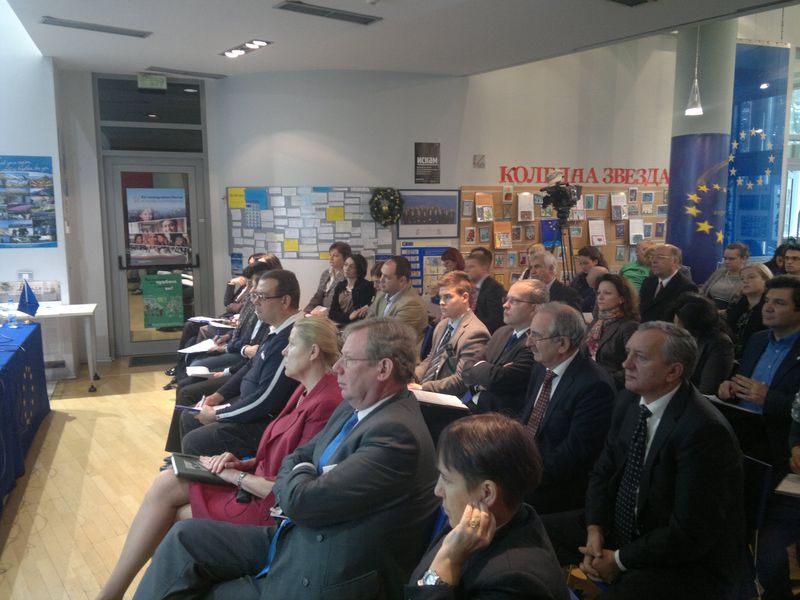 | © euinside
| © euinsideThe EU Budget 2014-2020 - a Hostage of the Debt Crisis
As we wrote a number of times, the multiannual budget of the European Union was always a reason for many disputes and quarrels, but the discussion of the framework for 2014-2020 is different, because it is taking place in a dynamically changing environment as a consequence of the unfolding deb ... | © euinside
| © euinsideMost Member States Believe the Commission's Budget Proposal is Good
If it was not for the crisis the multiannual financial framework 2014-2020 would have been the leading topic. This is the conclusion of Marcin Kwasowski, Deputy Head of Department of Economic Policy at the Ministry of Foreign Affairs of Poland. He said this at the beginning of the conference " ... | © euinside
| © euinsideEP: Without a Decision on the Own Resources there will be no Agreement on MFF 2014–2020
About the expectations for the European Council on 8-9 December, the possible solutions of the crisis and the challenges for the next European budget (MFF 2014-2020) - those were the topics euinside discussed with Ivailo Kalfin, Member of the European Parliament Socialists and Democrats MEP fro ...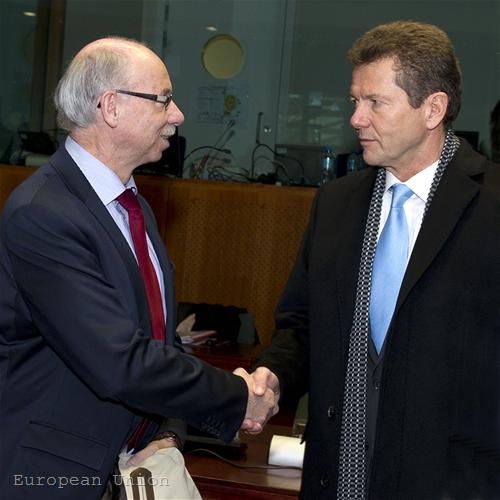 | © European Union
| © European UnionNo External Competitiveness without Internal Cohesion
On the 30th of November in Sofia the first more serious conference took place on the next multiannual financial framework (for the period 2014-2020), organised by the embassy of Poland in Bulgaria and the Centre for Economic Development. euinside participated as a moderator of the first panel "T ...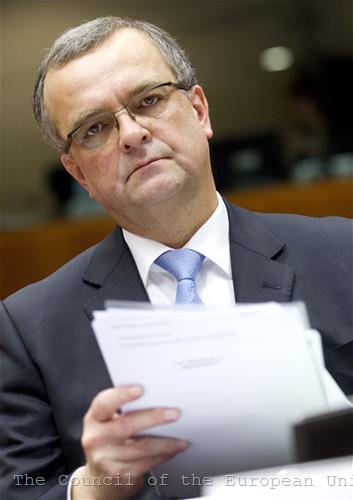 | © The Council of the European Union
| © The Council of the European UnionPros and Cons of a European Tax on Financial Sector
The introduction of a Financial Transaction Tax (FTT) in the EU has created a storm in a glass of water during the meeting of EU finance ministers on Tuesday, 8 November, against the background of the debt tsunami coming from Greece and Italy. The finance ministers exchanged both strong argument ...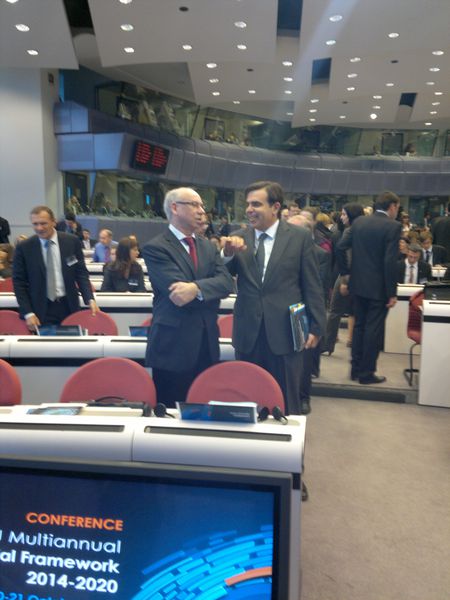 | © euinside
| © euinsideBuzek: We Will Not Be in a Crisis Forever
Negotiating the common European budget always evokes intense disputes often threatening its approval in time but never so far has this debate started in a more unpleasant context than today - the crisis in the euro area is already threatening global economy with serious shocks. Literally days be ...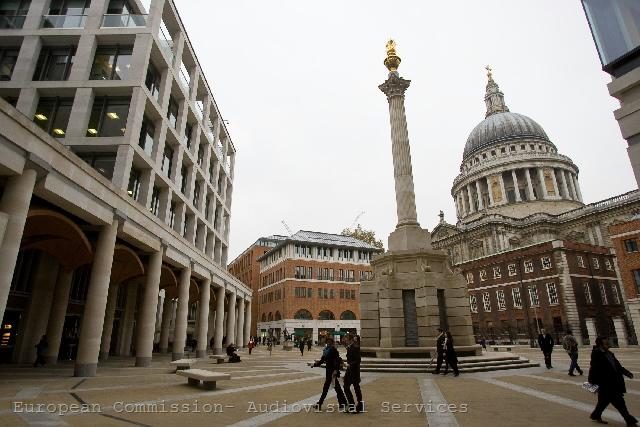 | © European Commission- Audiovisual Services
| © European Commission- Audiovisual Services The EU Expects 57 Billion Euros a Year from a New Financial Tax
The European Commission has proposed a Financial Transaction Tax (FTT) to be introduced in the EU from the year 2014. It will be applied to the exchange of financial instruments between financial institutions, where at least one of the parties is based in the EU. The Commission has proposed a mi ...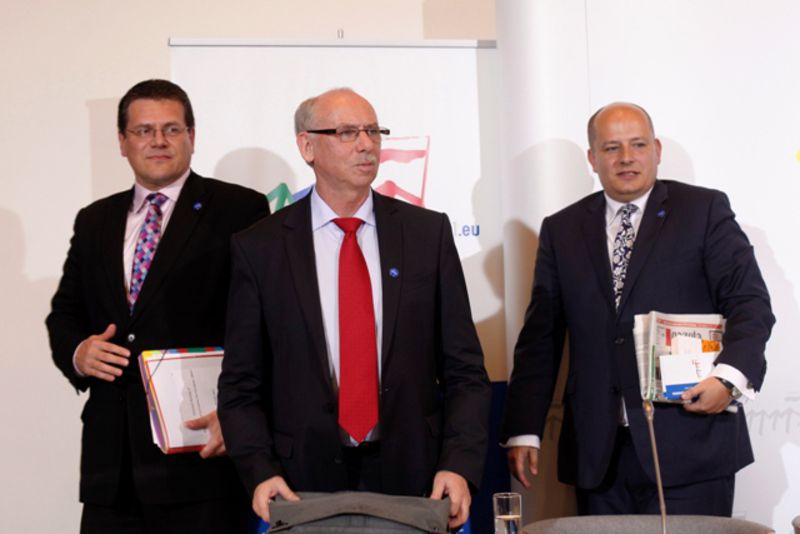 | © Polish Presidency
| © Polish PresidencyThe EU Budget 2014-2020: Calm before the Storm
The first meeting for debating the Commission's European budget proposal for 2014-2020 between the European Affairs Ministers from the EU Member States took place in the Polish resort city of Sopot on June 29. The Polish Presidency of the EU for sure did not schedule accidentally the first infor ...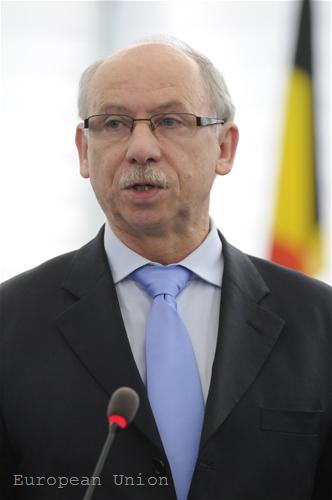 | © European Union
| © European Union"Europe" vs. the member states and vice versa
There are always furious battles for the multiannual financial framework (MFF) of the EU, but never so sharp on the frontline Europe against the member states and vice versa. This is precisely what happened on Tuesday (July 5), however, during the debate in the European Parliament on European Co ...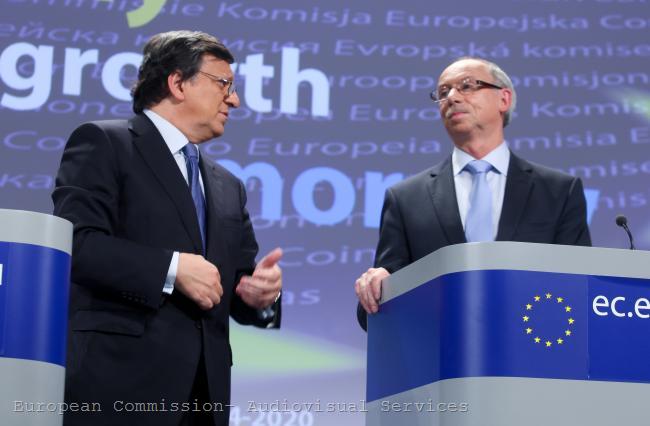 | © European Commission- Audiovisual Services
| © European Commission- Audiovisual Services The EU will invest in infrastructure, education and neighbourhood
Transport and energy infrastructure, science and education, external borders and neighbourhood - these are the priorities of EU's budget for the next seven-year financial period. According to the Commission's proposal, the so called Multiannual Financial Framework (MFF) 2014-2020 amounts to 1.02 ...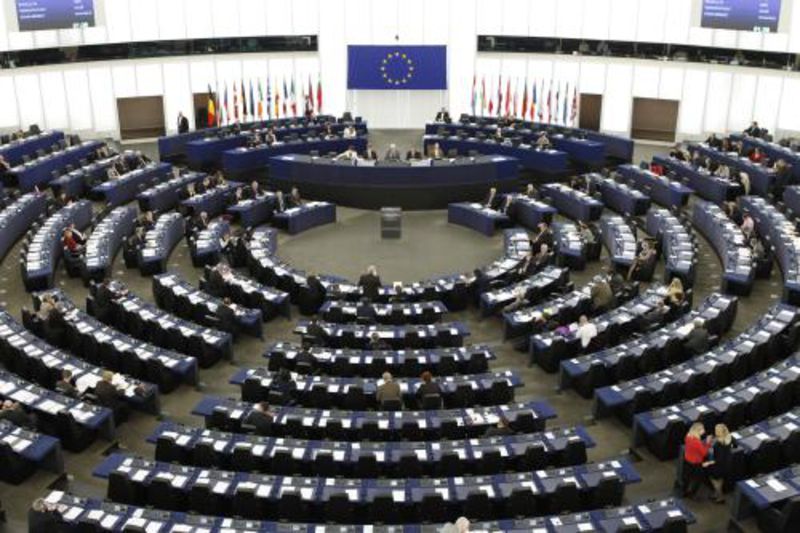 | © European Parliament- Audiovisual Unit
| © European Parliament- Audiovisual UnitEU 2014-2020: And Let the Negotiations Begin ... Now!
The road to the negotiations between the European Parliament (EP) and the Council on the next multiannual EU budget is now open after on 8 June the Parliament adopted by a large majority (468 votes "for", 134 "against" and 54 abstentions) a report on the Multiannual Financial Framework (MFF) and ...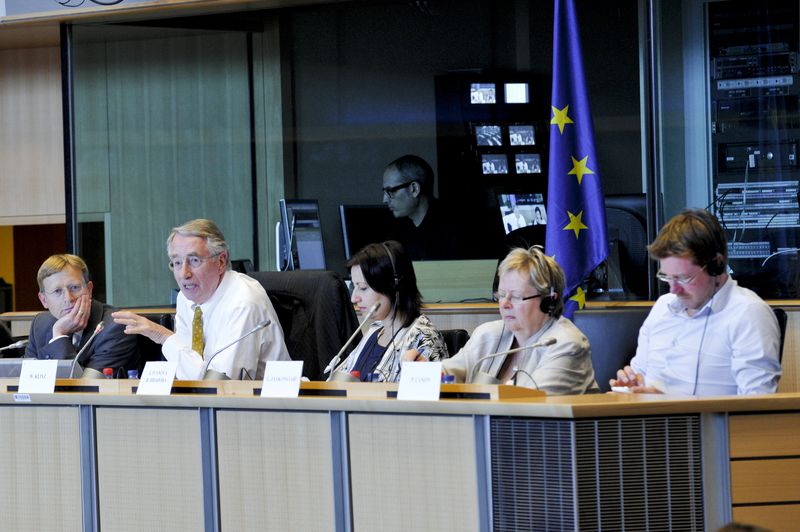 | © European Parliament- Audiovisual Unit
| © European Parliament- Audiovisual UnitThe EU after 2020: a huge budget, European investments, more Europe
EU budget to be increased to 5-10% of European GDP (currently it is 1%) after 2020 and part of it to be formed by own resources, but also "from shifting a larger share of the EU Member States' spending to EU level", the special Committee on Financial, Economic and Social Crisis in the European P ...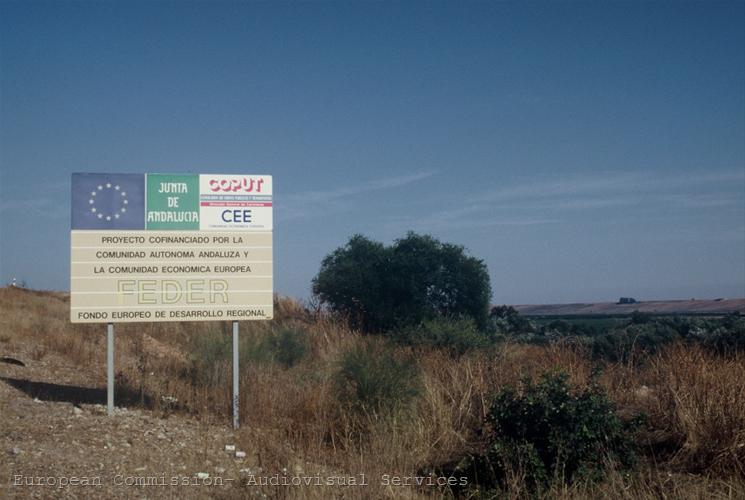 | © European Commission- Audiovisual Services
| © European Commission- Audiovisual Services MEPs: We have restored fairness in the allocation of the EU cohesion funds
The Regional Development Committee in the European Parliament proposes the creation of a new, intermediate category of regions eligible to receive EU regional funds. After a proposal of the group of Socialists and Democrats, the majority of committee members voted in favour of the idea to the cu ...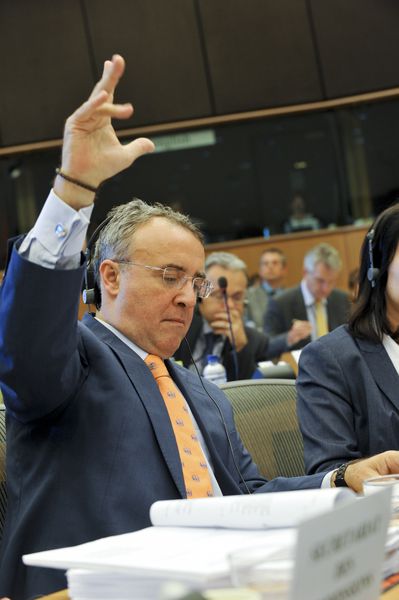 | © European Parliament- Audiovisual Unit
| © European Parliament- Audiovisual Unit